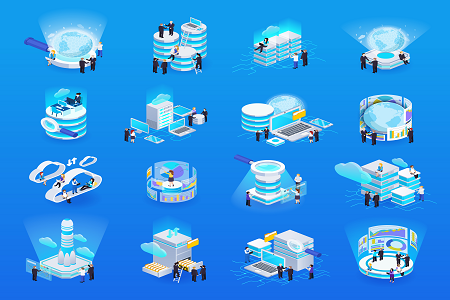Salient IT Services › Data center backup in Lodi
What you need to know about data center backup in Lodi
Even though many SMBs are happily giving up their data centers in preference for the public cloud, there are still more than a few in existence and they need to be backed up properly. Data center backup can be a whole lot more complex than cloud backup, so it’s important to tackle it in the right way. With that in mind, here is a quick guide to what you need to know about data center backup in Lodi.
Data center backup includes physical infrastructure
If you’re working in the public cloud then dealing with hardware failures is your vendor’s problem. Similar comments apply to managed hosting services. If, however, you’re running your own data center, then you need to think about how you’re going to cope with hardware failures. In some cases, this could, in principle, be as straightforward as calling on warranty support/your leasing vendor and getting them to swap out/repair the component. Even then, however, you’re going to have to think about how you’ll manage in the interim.
You need to think even more carefully about hardware failures which could impact your data. The most obvious example of this is hard-drive failure. This is effectively impossible to prevent, so it could make a lot of sense to look for a good data recovery service beforehand so you know where to go when you have issues.
It’s advisable to back up your digital assets as well as your data
In the context of a data center, digital assets would mean assets such as operating systems and applications as well as all the data necessary to make them work, such as configuration data and, if you’re running virtual data, the host and management consoles. It’s also strongly recommended to back up any information required to demonstrate that you are using the assets legally, which would typically be licensing information. You’ll also want to make sure that you have access to the contact details for any support systems you use.
The better you manage your data the easier it is to back up your data
If you ever need to recover your data center from zero (for example in a disaster-recovery situation), then what you’d ideally like is just to start a process and have whole servers come back online in a sequence which reflects the priority of their contents. This is entirely possible, but it does require a lot of organization and that starts with knowing your data to the point where you can segment it across servers in a logical manner that reflects your business needs.
It’s also worth noting that the less data you have in your production systems, the less data you will need to back up and the less data you will need to restore, therefore the less time these operations will take.

This has two implications. Firstly, it makes sense to do everything you can to clean up your data, so you avoid backing up unnecessary data purely by overlooking the fact that it’s there. Secondly, it makes sense to move dormant data swiftly out of your production systems, either by deleting it or putting it into an archive. In one sense, leaving dormant data around your production systems does not have the same financial implications as it does in the public cloud. It does, however, slow your back up and recovery times and increase your security risks.
You need the right tools to manage your data center backups
In principle, you have three or four main options (depending on how you count them). These are hardware-based solutions, cloud-based solutions (Backup-as-a-Service), software solutions and hybrid solutions (which are part-software and part-BaaS). Hardware-based solutions and BaaS are simple, convenient and very affordable, but they tend to be best suited to smaller data centers. Hardware-based solutions have the benefit that they generally come with storage, but that also makes them a single point of failure whereas BaaS tends to be more robust.
Most businesses, even SMBs, are really going to be looking at software solutions (or hybrids) so that they can control and customize the options to suit their exact environment not just at the time when the software is installed, but going forward as changes are made. In fact, these days, it’s increasingly common for even smaller SMBs to need more than one software solution due to the difficulty of finding one product which will cover everything a company needs, let alone everything it wants.
It may take some trial and error to find the right solution(s) for you and these may need to be updated as your business develops. The key point to note, however, is that nothing beats real-world testing in your own environment so it pays to dedicate time and resources to this.
If you’d like to speak to a reputable and experienced data center backup partner in Lodi, please click here now to contact Salient IT.



